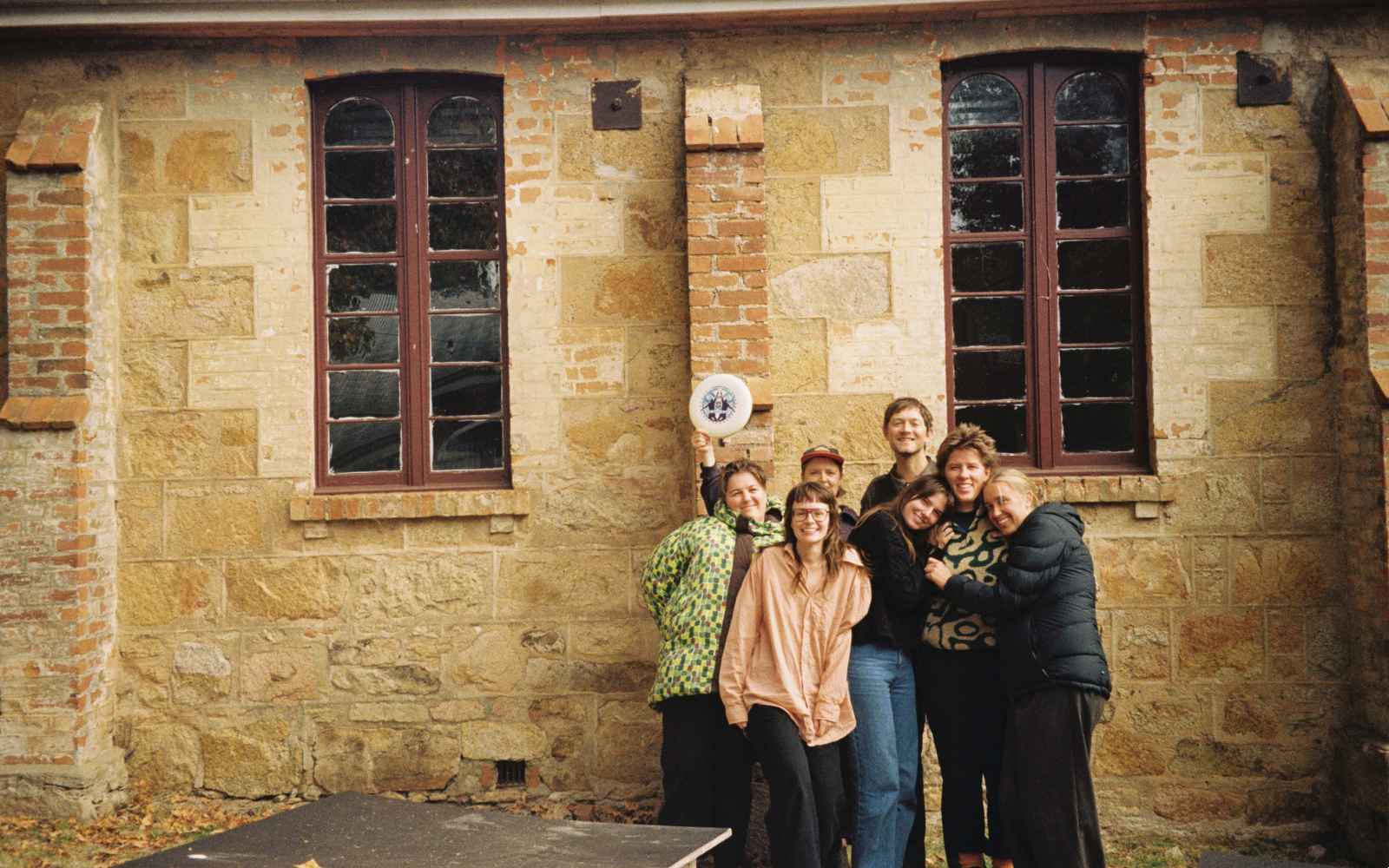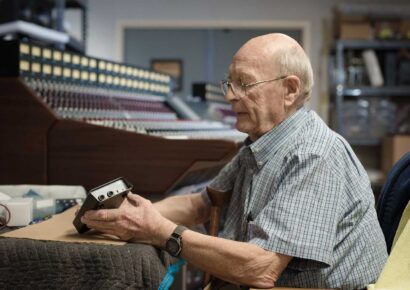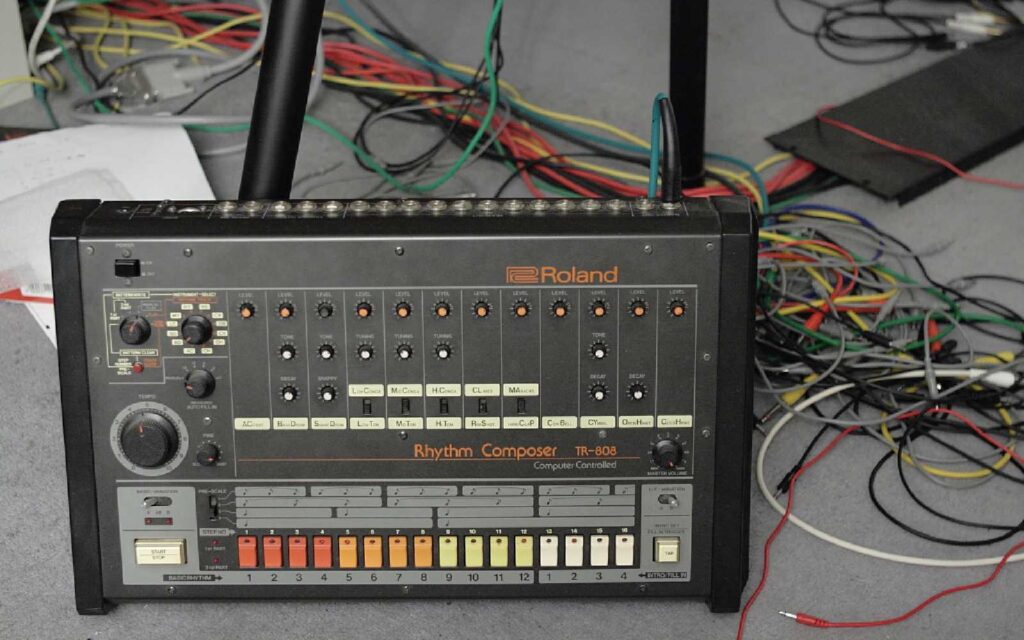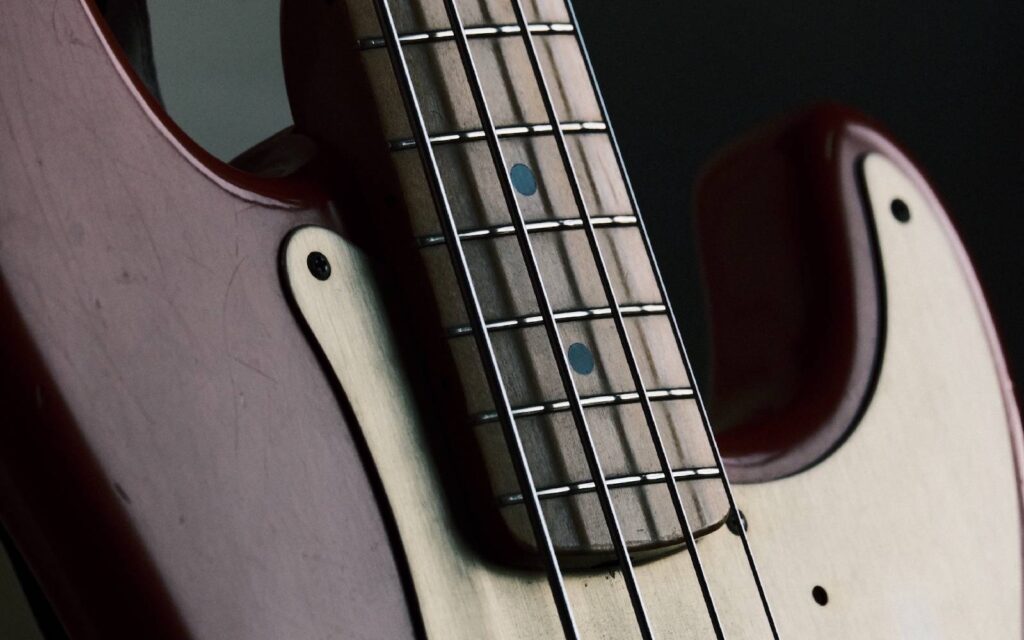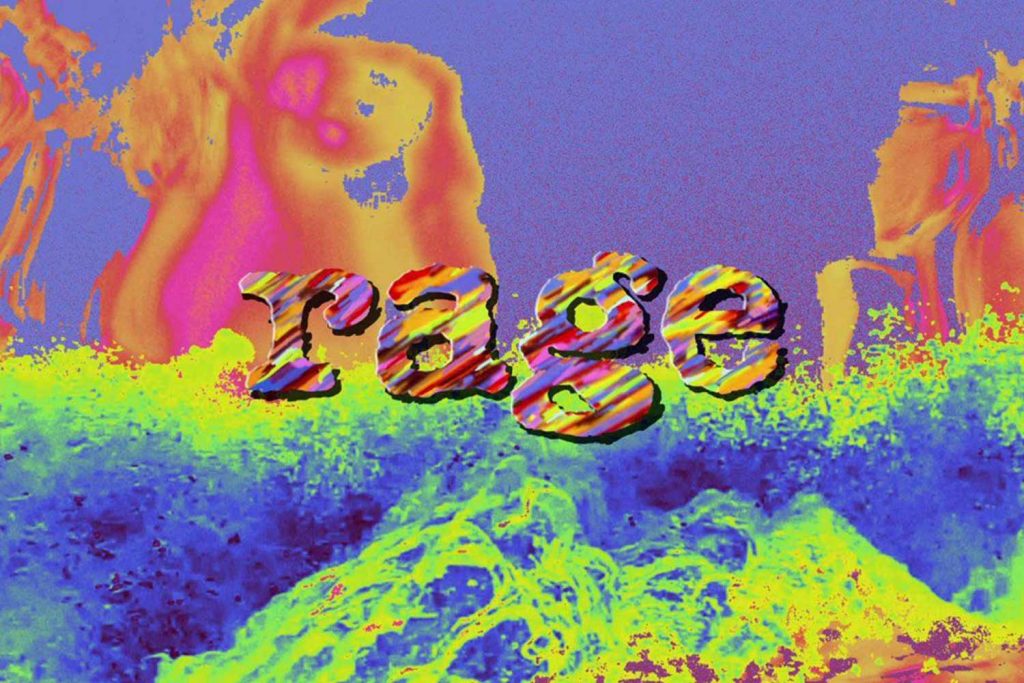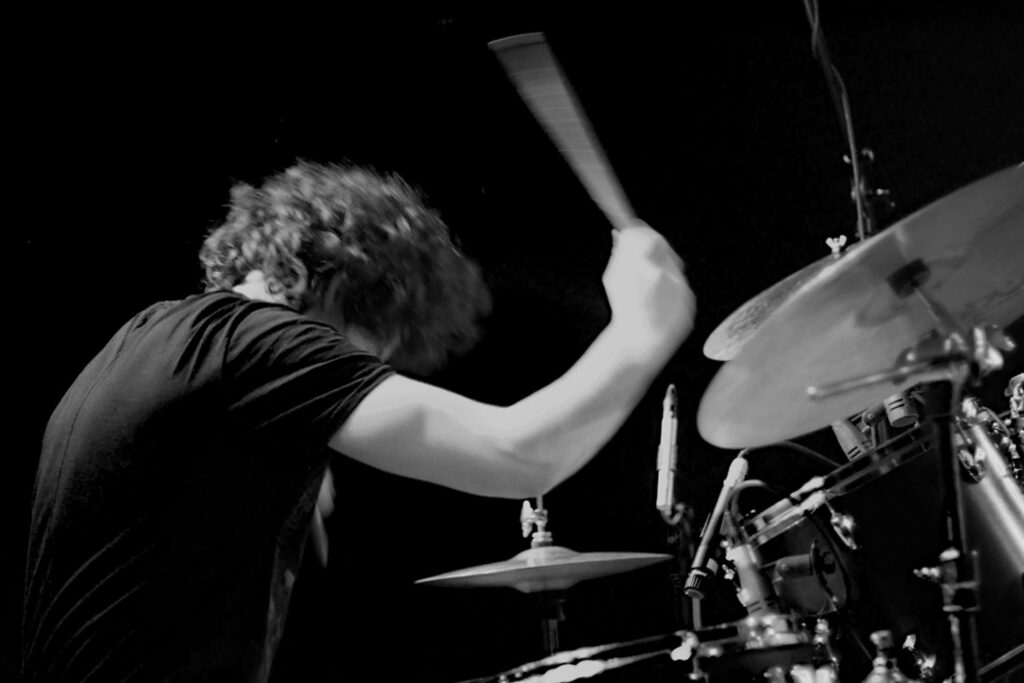Ruby Gill is telling a special story.
The new album from Ruby Gill, Some Kind of Control, is out today, with singles like “Touch me There” telling the tale of Ruby quietly coming out to herself, and in Ruby’s own words this album is “cheekier, looser, gayer and even more raw” than ever before.
This album, and the Australian Music Prize & Music Victoria-award nominated I’m gonna die with this frown on my face, feature Ruby’s unique wit, one liners that cut to the core of an emotion or a feeling, however fleeting.
“Usually the songs are completely complete in their form and structure and lyrics,” explains Ruby, speaking to the timeline of bringing a producer into the songwriting process. “I guess the record is co-produced, but I really don’t enjoy the process of figuring out technically how to record it.”
Read up on all the latest features and columns here.
Ruby explains there’ll often be layers and layers of instruments, vocals and more in demo versions of songs, these demos becoming special and sometimes difficult to let go of, or re-record.
“I bring a producer in at that point where I’m like ‘How do we make this better? And how do we make it happen? Make it clean and beautiful.’”
“I don’t feel particularly inspired by the technological side of songwriting. My job is definitely to make the words and the music and then someone can figure out how to record it.”
Ruby explains that “The Flood”, the lead single for the record, where they’d only written half of it before sharing it with producer Tim Harvey, who encouraged Ruby to finish it. Tim clearly saw something in the ideas presented to him, pushing Ruby through a few variations.
“When I make my demos I make them on my phone on Garageband, and I love that process.” Ruby explains.
“I love layering and I love sitting for hours with my headphones in and making it work, but I can’t be bothered to learn that next step up of a full studio setup. If I did it myself it would be so DIY and that’s totally fine, everyone has a role, and I know I’m capable, but I’m just bored by the problems that can happen.” they conclude.
Tim Harvey
So with such an insular creative process— what made Tim Harvey the right producer to allow in?
“He is just an angel. Maybe firstly he’s a friend, which is helpful, because I feel we’re having fun and working together. He also has such a gentle energy, he leaves so much space for things to happen and his ideas are amazing, but he’s not ever forcing them onto anyone.”
Ruby continues, explaining that Tim is there to help artists realise their vision, not there to bring his own ideas to the table.
“I have such weird requests, like where I want to leave all the bird noises in from outside the studio and I don’t want it to sound clean or polished.” Ruby explains. “And he’s so on board with it being whatever I want it to be.”
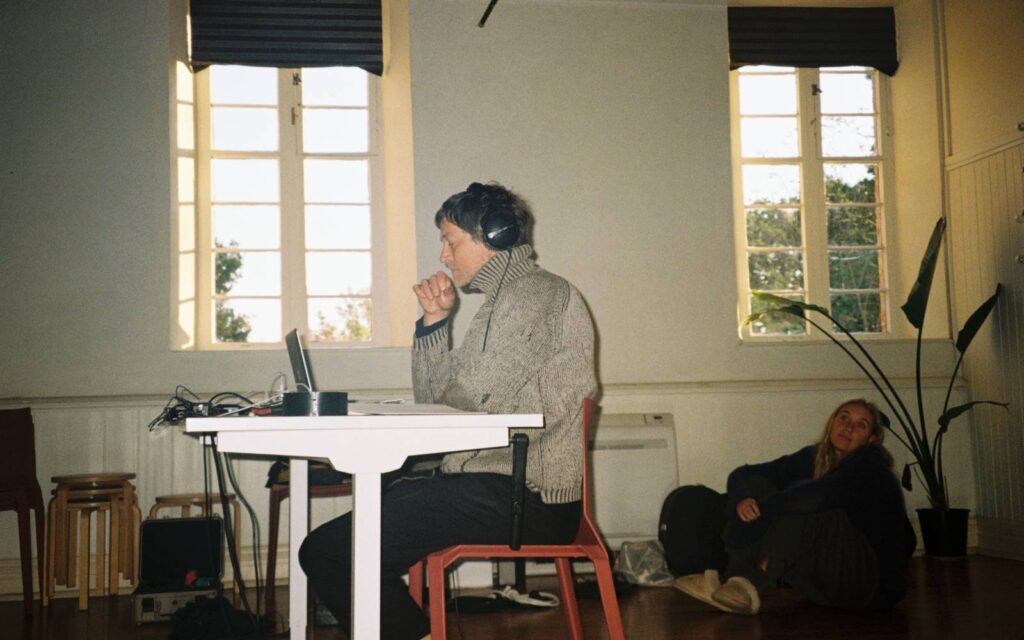
We riff for a moment about engineering and producing being such a people-based job, producers and artists spending hours and days together in (sometimes small) tight, soundproofed spaces, so getting along is of utmost importance.
“To be honest, it’s been a beautiful process for me,” Ruby begins. “Like I am a perfectionist in my life, like I rarely struggle to not think I’ve done something wrong… just on a therapy level.” Ruby laughs.
“Tim’s been a really healing thing in my life, because he’s so open to thinking something’s amazing even though it’s not polished, it’s allowed me to think ‘I fucked that take up and still it made you cry.’ so let’s just leave it.”
“Let’s make real music and not concocted music.”
Leading on from allowing imperfections onto the album, Ruby discusses recording a choir of close friends in Old Stone Hall in Beechworth —an imperfect acoustic space.
“It was to make it feel more real.” they explain. “When I recorded the demo, it was just me, I was the choir. Very close mic’d, and doubled over a hundred times. It didn’t have the imperfection or grittiness or space of a room.”
Ruby had played a show there before, and it had a nice feeling and sense, and beautiful acoustic quality.
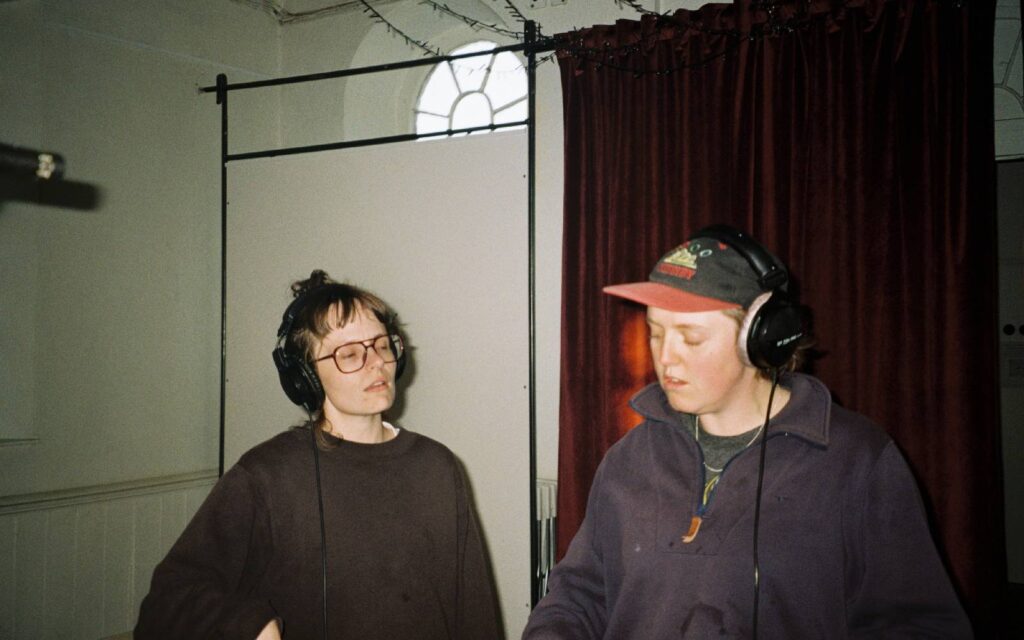
“There was eight of us in the choir, and we just sat all day and just sang. I asked Tim to not mic it close, and just mic up the hall, and he had mics all over the hall capturing all different levels and layers.”
“Sometimes we would step up to the mic, instead of trying to mic us up in a clever way, we moved our bodies to create different levels of distance. It felt real, instead of humming into a mic that doesn’t have context.”
There’s a layer of magic to these recordings that can’t really be added in mixing or with an effect. There’s a sense of community and fun, obviously the dynamic of friends standing and singing together in a great sounding old hall, that comes through in the recordings. It’s as if you can hear the grins on the faces of the singers, including Annie-Rose Maloney, Hannah McKittrick, Angie McMahon, Hannah Cameron, Jess Ellwood and Olivia Hally, as well as Ruby.
“Luckily everyone was my friend, so it was just fun, but I’m sure if they hadn’t been friends, the songs are kind of silly. They’re very heavy and there’s some vulnerable stuff in there, but they’re also from this place in my life where I was starting to have fun in my life for the first time, probably ever.”
Some Kind of Control
Ruby explains the previous record, I’m gonna die with this frown on my face, was about being angry, and so full of difficult feelings all the time, but the last few years this has all turned around. Ruby has let go of some anger, and wanted to capture that on the record.
“I like that you can hear each person. There’s some songs you can hear Hannah McKittrick, or hear Annie-Rose Maloney’s voice. They’re in the choir but you can hear them peaking out over the top—like ‘That’s the Angie McMahon song, or that’s the Hannah Cameron song. It’s really special.”
Catch Ruby Gill on tour throughout April and May, including a show at the Old Town Hall in Beechworth. Full details, ticketing and dates here.
